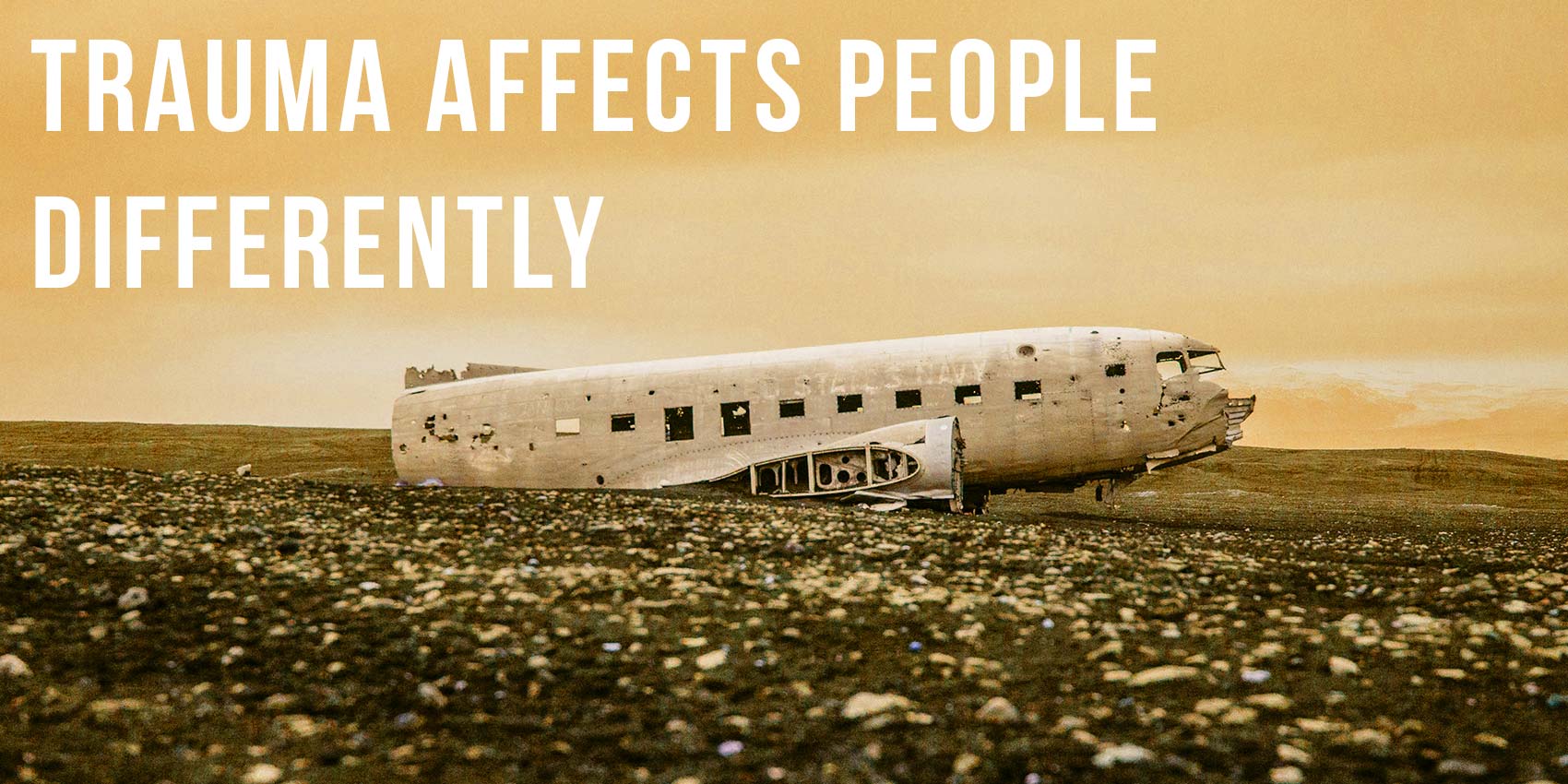27 Feb Trauma affects people differently

People experience events differently. Let’s take Frank and Simon as an example first. Both Frank and Simon were raised in loving, supportive homes. When they were in their mid-thirties, Frank and Simon were in a horrible train crash in Europe. Besides experiencing the horrors of the crash itself, they both saw people die and others severely wounded.
Frank walked away from the crash, returned home to his loved ones and through their support was able to return to work within a few days. When people would ask him about the event, he was okay discussing it and talked about how grateful he was to be alive. In fact, he felt as if he was embracing life a little more fully given that he nearly died.
Simon, however, could not get the images of the dying and wounded people out of his mind. He felt hopeless and horrified by the experience. His family tried to be supportive and help him through it but he felt he needed more help. He couldn’t sleep at night and was unable to concentrate at work. Finally, he decided to see a therapist.
Frank and Simon are examples of people who came from very similar backgrounds yet experienced an event quite differently. You probably see this in your own life even thought you may not have experienced something as traumatic. People respond to all types of everyday events differently.
We are all different. Our responses are based on::
Our genes – we’re all born with a unique gene structure
The way we were raised – plays a huge part in how our genes will be expressed
Our personality – is shaped by our genes and the way we were raised
Our life experiences – these all impact how we view the world and ourselves
Take Frank and Simon as an example. To begin, they have completely different gene structures. And although we know they were both raised in supportive and loving homes, we don’t know all of their experiences. The differences in their genes and in their life experiences have shaped their personalities and account for their different responses.
For Frank the trauma of the train crash was processed in a few weeks and in fact, he found a way to turn the traumatic event into something positive – he was more appreciative of his life (an example of post traumatic growth). Simon could not process the event and it remained traumatic for him until he started to see a therapist and work through his experience.
Of note, Frank and Simon did not experience abuse as children. But their differing personalities (genes and life experiences) are what prompted Simon to require more help processing the train wreck. However, when we do experience childhood trauma, it shapes us in a unique way and impacts how we respond to both everyday experiences and to major life events. As such, childhood trauma is the subject of the next few posts.




Post Question:
Think of the last time you had to handle something difficult. How do you feel you responded? If you could go back in time, would you do anything differently?
Answer the post question here
What's being said